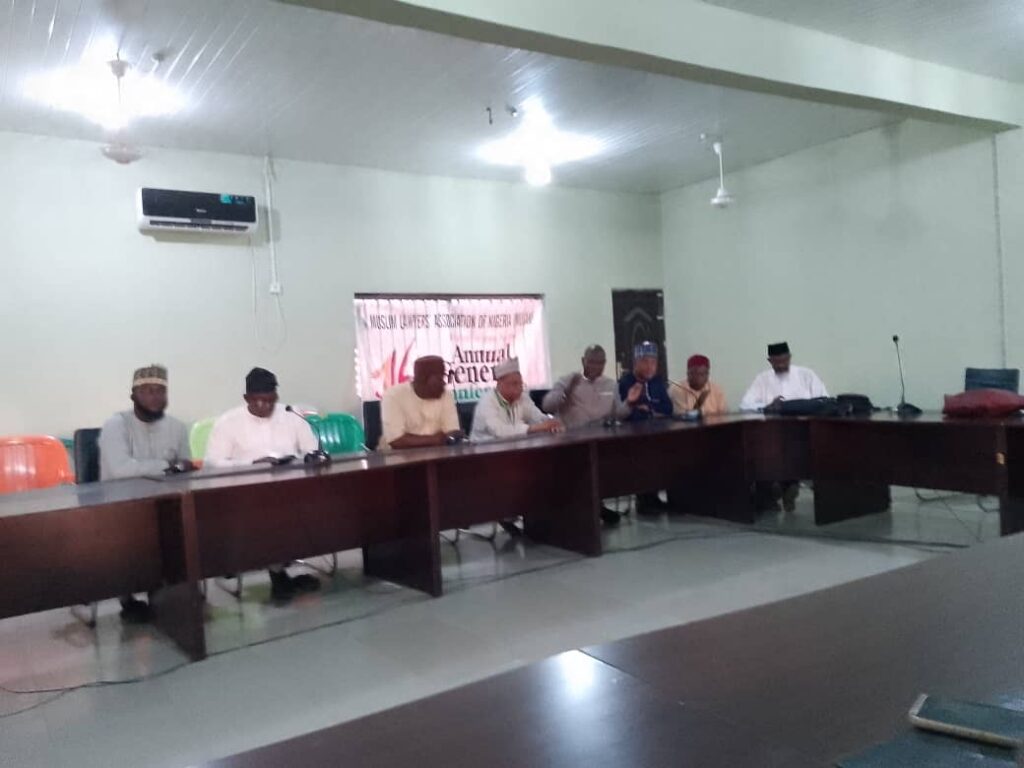The Muslim Lawyers Association of Nigeria (MULAN) has urged that the adoption of Artificial Intelligence (AI) in Nigeria be approached with caution, underpinned by robust regulatory frameworks and ethical safeguards to prevent harmful consequences.
This call was made in a 17-point communiqué issued at the end of the association’s 16th Annual General Conference, held in Ilorin, the Kwara State capital. The communiqué was signed by the association’s Secretary General, Dr. Akinwale Akinlabi.
While acknowledging the immense potential of AI in the legal profession—particularly in legal research and case management—MULAN emphasized that AI must not replace human reasoning or judicial discretion.
“The Bar and the Bench should embrace AI as a complementary tool, not a substitute for judicial reasoning or human discretion,” the communiqué stated.
The association stressed the need for continuous personal development among lawyers and the integration of modern technology to stay relevant in the fast-evolving global legal landscape.
“AI’s use in legal practice should be carefully managed to avoid professional, ethical, or legal pitfalls. As AI reshapes the legal landscape, the Nigerian lawyer must evolve—not be replaced. The lawyer of the future must be tech-literate and adept at leveraging AI for efficiency while maintaining ethical standards and upholding human values,” the communiqué added.
MULAN further urged governments at all levels to initiate legislative reforms and invest in AI infrastructure to position Nigeria in alignment with global technological trends.
On the religious front, the association clarified that Islam permits the use of AI, provided it does not contravene Sharia principles. It called for the regulation of AI tools in Muslim homes within the boundaries of Islamic law.
The association also charged Muslim lawyers to maintain hard work, integrity, and strategic positioning, encouraging them to “work smart and trust in Allah’s divine plan.”
In line with evolving legal practice, MULAN advised Muslim lawyers to embrace collaborative practice and mentorship, noting that the era of one-man law firms is becoming obsolete. It emphasized the importance of teamwork, partnerships, and intergenerational mentoring for improved client service, professional growth, and sustainability.
Reaffirming the constitutional protection of Islamic personal law in Nigeria, MULAN reiterated that Muslims are entitled to resolve personal matters in accordance with their religious beliefs.
The body commended the efforts of Sharia Panels in South West Nigeria but highlighted their limitations, stating that they currently function as arbitral bodies without the authority of formal courts and lack an appellate structure.
Given the significant Muslim population in the region, MULAN called on state governments in the South West to enact necessary legislative and administrative reforms to establish Sharia Courts of competent jurisdiction, including Sharia Courts of Appeal, in accordance with constitutional provisions.
MULAN concluded by reaffirming its commitment to promoting justice and upholding Islamic values in all aspects of legal practice and governance.
















